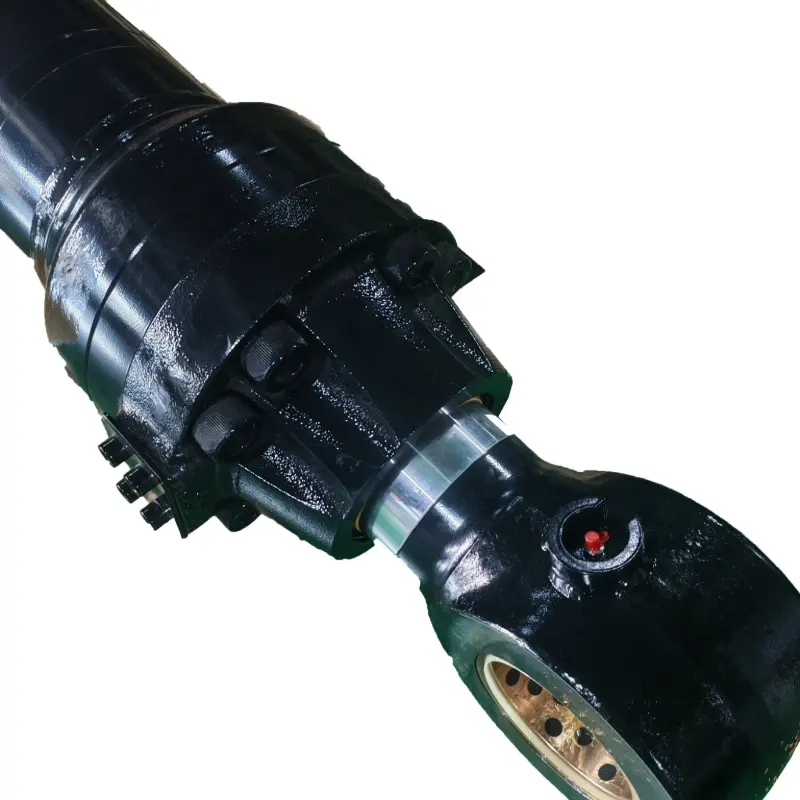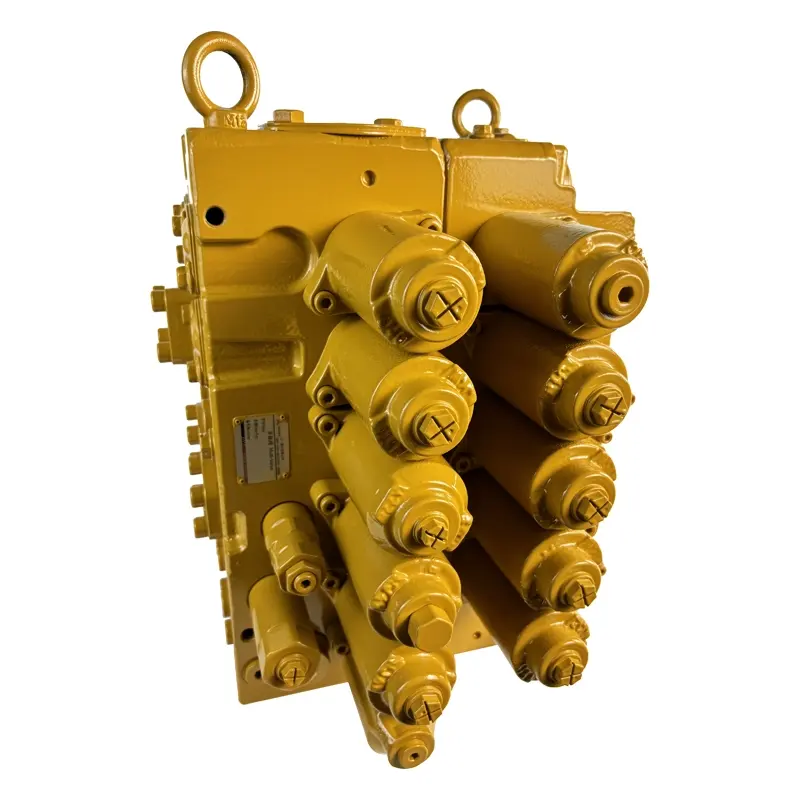Hydraulic Cylinder Troubleshooting Guide: How to Quickly Resolve Excavator Hydraulic Problems
Release time: 2025-09-12
The hydraulic system is the core component of an excavator, and the hydraulic cylinder, as a key component in the hydraulic system, directly affects the excavator’s operating efficiency and performance. Cilindro hidráulico failure not only causes equipment downtime but can also cause more serious damage. Therefore, promptly identifying and resolving hydraulic cylinder problems is crucial. Zhuri machinery provides troubleshooting methods for common hydraulic cylinder problems, helping you quickly locate and resolve hydraulic issues when they occur, ensuring efficient equipment operation.
Table of Contents

Hydraulic Cylinder Operation or Failure
Common Causes:
- Insufficient hydraulic oil: Insufficient oil in the hydraulic system can cause the hydraulic cylinder to malfunction.
- Clogged oil lines: Clogs in the hydraulic oil lines or hydraulic valves can restrict oil flow.
- Contaminated or aged hydraulic oil: Contaminated or deteriorated oil can affect the proper operation of the hydraulic system.
- Damaged seals: Damaged seals in the hydraulic cylinder can cause oil leakage, affecting the buildup and maintenance of pressure.
Troubleshooting Methods:
- Check the hydraulic oil level to ensure it is adequate. If the oil level is too low, refill it promptly.
- Check the oil pipes and hydraulic valves for blockages and remove any debris from the pipes.
- Replace the hydraulic oil, especially if it appears deteriorated or contaminated. Ensure that you use standard hydraulic oil.
- Inspect the seals in the hydraulic cylinder. If any signs of aging or damage are present, replace them promptly to prevent oil leakage.
Hydraulic Cylinder Oil Leakage
Common Causes:
- Aging Seals: After prolonged use, hydraulic cylinder seals may age, wear, or become damaged, leading to hydraulic oil leakage.
- Improper Installation: Improper seal installation or damage to the hydraulic cylinder can also cause oil leakage.
- Excessive Oil Temperature: Excessive hydraulic oil temperature can cause seals to expand, losing their sealing effectiveness and causing oil leakage.
Troubleshooting Methods:
- Check the integrity of the hydraulic cylinder seals. Hydraulic cylinders used in high-temperature and high-pressure environments should be inspected regularly.
- Ensure seals are installed correctly and strictly follow manufacturer specifications to avoid damage.
- Monitor the oil temperature to prevent excessively high oil temperatures from affecting the sealing effect. If necessary, install an oil temperature monitoring system.
Hydraulic cylinders are sluggish or weak
Common causes:
- Oil pump failure: The pump cannot provide sufficient pressure, causing the hydraulic cylinder to move slowly or weakly.
- Air in the hydraulic system: Air or bubbles in the system can cause oil compression, affecting the hydraulic system pressure.
- Low oil temperature: Hydraulic oil temperature is too low and viscosity is too high, resulting in poor fluidity in the hydraulic system and affecting the operation of the hydraulic cylinder.
Troubleshooting:
- Check the hydraulic pump’s output pressure to ensure normal operation. If the pump is faulty, repair or replace it.
- Check the hydraulic system for air intrusion and remove air bubbles through the bleeder to ensure smooth hydraulic oil flow.
- Monitor the oil temperature and keep it within the normal operating temperature range. In cold weather, use hydraulic oil with better low-temperature fluidity.
Hydraulic cylinders are jerky or vibrating violently
Common causes:
- Hydraulic oil contamination: Impurities or water in the oil affect the smooth movement of the hydraulic cylinder. Internal wear of the hydraulic cylinder: Severe wear on the piston, barrel, and other components of the hydraulic cylinder results in uneven movement.
- Unstable pressure: Unstable hydraulic system pressure may be caused by a malfunction in the hydraulic pump or pressure regulating valve.
Troubleshooting:
- Check the cleanliness of the hydraulic oil to ensure it is free of impurities. If contamination is detected, replace the oil and clean the system immediately.
- Inspect the internal components of the hydraulic cylinder for severe wear and replace any components if necessary.
- Check the operating condition of the hydraulic pump and pressure regulating valve to ensure stable system pressure. Repair or replace any abnormalities.
Hydraulic cylinder overheating
Common causes:
- Insufficient hydraulic oil flow: When the oil flow is insufficient, the hydraulic oil remains in the system for an extended period, which can easily lead to overheating.
- Poor heat dissipation: Failure of heat dissipation devices in the hydraulic system, such as coolers or radiators, can cause the oil temperature to rise.
- High-load operation: Prolonged operation of the hydraulic cylinder under high load can cause the system temperature to rise.
Troubleshooting:
- Check the hydraulic oil flow to ensure that the oil is flowing effectively and dissipating heat promptly. Check the cooling system for proper operation, especially in high-temperature environments, to ensure the radiator and cooler are functioning properly.
- Avoid overloading the hydraulic system and regularly check the hydraulic cylinder load to ensure the system is operating within acceptable limits.
Conclusão
Troubleshooting hydraulic cylinder failures requires professional technical knowledge and experience. Promptly identifying and resolving hydraulic issues not only effectively improves excavator efficiency but also extends the life of the hydraulic system. As a crucial component of excavator parts, the healthy operation of hydraulic cylinders is crucial. We hope this guide will help you quickly identify and resolve hydraulic cylinder issues, keeping your equipment in optimal working condition.
If you require further technical support or product purchasing information regarding peças de cilindro hidráulico, please feel free to contact our professional team.


